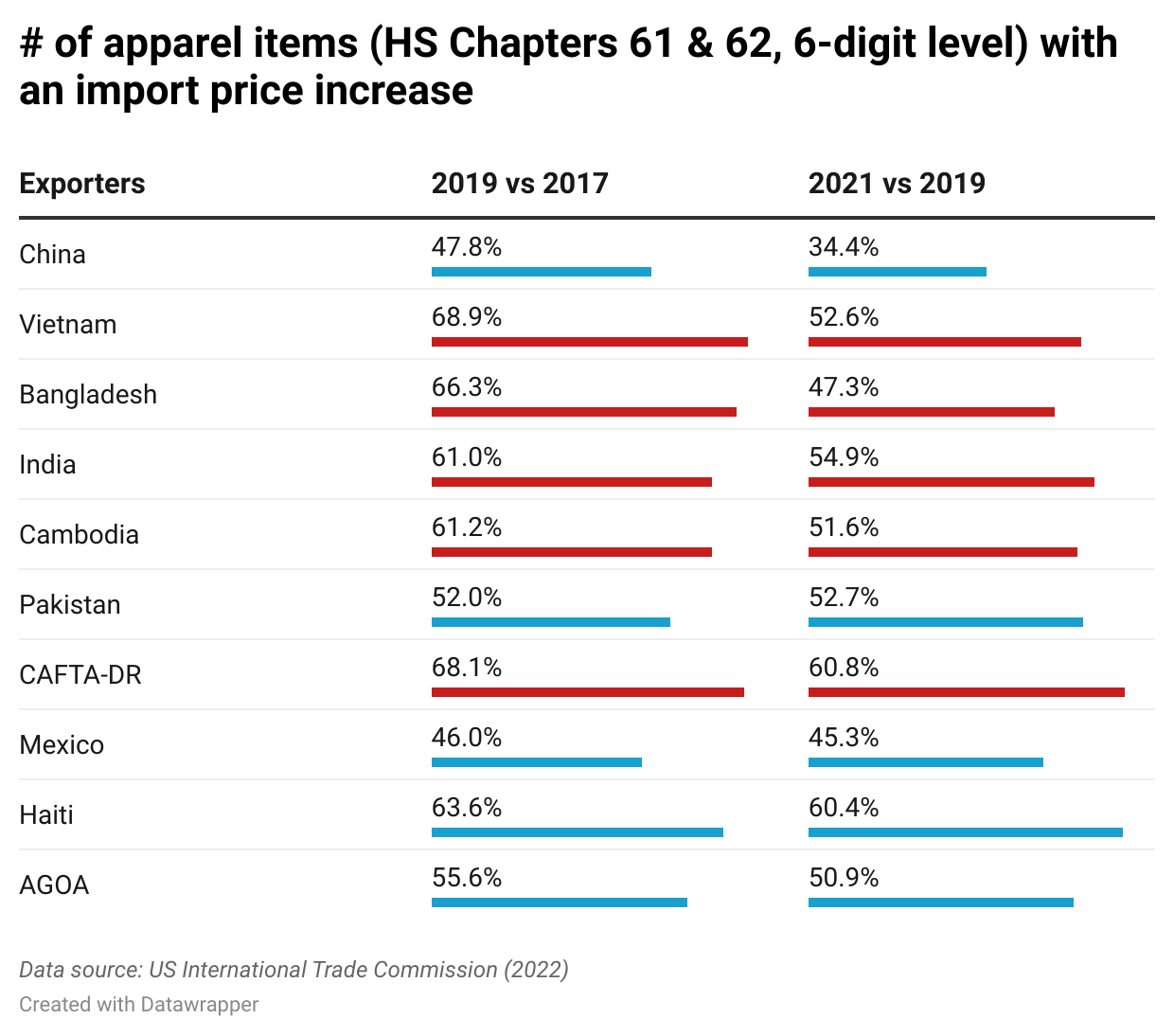Post-Roe America: How Over-the-Counter Birth Control Reshapes Reproductive Healthcare

Table of Contents
Increased Accessibility and Affordability
Over-the-counter (OTC) birth control offers a significant step towards improving access to essential reproductive healthcare. The traditional model, requiring a doctor's visit and a prescription, presents several barriers for many Americans. OTC birth control removes these obstacles, leading to increased accessibility and affordability.
-
Reduced healthcare costs for individuals: Eliminating doctor's visit fees and prescription costs significantly lowers the financial burden of birth control. This is particularly impactful for low-income individuals and those without health insurance. Studies show that the cost of prescription birth control can be a significant deterrent for many women, leading to inconsistent or forgone use.
-
Eliminates the need for insurance coverage for birth control: Many insurance plans, even those that cover contraception, often require prior authorization and co-pays. OTC birth control bypasses these insurance hurdles, making it immediately accessible to anyone who can afford to purchase it. This is especially important given the recent variations in insurance coverage across states.
-
Increased convenience and privacy: Obtaining birth control OTC eliminates the need for appointments and discussions with healthcare providers, offering increased privacy and convenience for individuals. This is crucial for individuals who may feel uncomfortable discussing their reproductive health with others.
-
Improved access for underserved populations: Over-the-counter birth control improves access for people in rural areas with limited access to healthcare providers, those lacking health insurance, and those facing social or cultural barriers to seeking healthcare services. This increased accessibility fosters health equity and reduces disparities in reproductive healthcare.
For example, the potential cost savings compared to prescription birth control could be substantial, potentially amounting to hundreds of dollars annually per person. This financial relief can be particularly significant for marginalized communities already facing economic hardship, further highlighting the positive impact of OTC birth control access.
Empowering Women to Take Control of Their Reproductive Health
The availability of over-the-counter birth control empowers women to take control of their reproductive health and family planning. This shift from a system dependent on healthcare provider intervention to one that prioritizes self-determination is profound.
-
Greater autonomy in family planning decisions: Ready access to birth control enables women to make proactive choices about their reproductive lives, aligning their decisions with their personal circumstances and goals. This control is paramount for individuals who desire greater autonomy over their bodies and futures.
-
Reduced reliance on healthcare providers for contraception: While healthcare providers remain crucial for reproductive health, OTC birth control reduces reliance on them solely for contraception. This allows for a more comprehensive approach to healthcare, enabling women to focus on other aspects of their well-being.
-
Increased ability to proactively manage reproductive health: The ability to purchase birth control when needed allows for consistent use, minimizing unintended pregnancies. This proactive management contributes to better overall reproductive health outcomes.
-
Promotes informed consent and self-determination: Accessible information and readily available OTC birth control fosters informed consent and empowers women to make choices aligned with their values and beliefs, reinforcing their right to self-determination.
The psychological implications of having greater control over one's body and reproductive choices are significant. Feeling empowered to make personal decisions promotes self-esteem and reduces anxiety related to unintended pregnancies.
Potential Challenges and Concerns
While the benefits of over-the-counter birth control are numerous, potential challenges and concerns must be addressed.
-
Concerns about proper usage and potential for misuse: Ensuring proper use and minimizing misuse requires comprehensive education and readily available information. Public health campaigns are crucial to promoting responsible use and addressing misconceptions.
-
The need for comprehensive education and readily available information: Access to accurate information regarding different birth control options, their effectiveness, and potential side effects is vital. Educational resources should be diverse, accessible, and culturally sensitive.
-
Potential impact on unintended pregnancies and abortion rates: The impact on unintended pregnancies and abortion rates is complex and likely multifaceted. While increased access to birth control could reduce unintended pregnancies, the effect on abortion rates might be less direct and could vary depending on various factors.
-
The role of pharmaceutical companies and ensuring affordable access for all: Ensuring that OTC birth control remains affordable and accessible for all, regardless of socioeconomic status, is crucial. Policies should be implemented to prevent price gouging and ensure equitable access.
The importance of public health campaigns and educational initiatives cannot be overstated. These campaigns must be easily accessible and address a diverse range of needs and literacy levels.
The Role of Policy and Legislation
Government policies significantly influence the availability and affordability of over-the-counter birth control.
-
The impact of state-level legislation on access: State-level legislation can either expand or restrict access to OTC birth control, creating significant disparities in access across the country.
-
The role of the FDA in regulating over-the-counter birth control options: The FDA's role in approving and regulating OTC birth control options is crucial in ensuring safety and effectiveness. A transparent and rigorous approval process is essential.
-
Potential for future policy changes that either expand or restrict access: The future availability of OTC birth control hinges on ongoing policy debates and advocacy efforts. Advocacy groups play a critical role in shaping policy and ensuring equitable access.
-
Advocacy groups pushing for greater access to birth control: Numerous advocacy groups actively work to expand access to affordable and accessible birth control, playing a vital role in shaping public opinion and influencing policy decisions.
Current legislative efforts span the spectrum, with some states actively promoting wider access while others seek to restrict it. This highlights the ongoing political and legal battles surrounding reproductive healthcare in the US.
Conclusion
The shift towards over-the-counter birth control presents a significant opportunity to reshape reproductive healthcare in a post-Roe America. Increased accessibility and affordability can empower women to make informed decisions about their reproductive health. However, addressing potential challenges and ensuring comprehensive education are crucial to maximizing the benefits and minimizing potential risks. The future of reproductive healthcare depends on ensuring equitable access to effective birth control. Learn more about the movement for over-the-counter birth control and get involved in advocating for policies that support affordable and accessible reproductive healthcare for all.

Featured Posts
-
 Golden Knights Defeat Blue Jackets Hills Stellar Performance Secures Win
May 10, 2025
Golden Knights Defeat Blue Jackets Hills Stellar Performance Secures Win
May 10, 2025 -
 The Bangkok Post And The Push For Transgender Rights A Current Affairs Analysis
May 10, 2025
The Bangkok Post And The Push For Transgender Rights A Current Affairs Analysis
May 10, 2025 -
 Us Tariffs French Minister Pushes For Increased Eu Retaliation
May 10, 2025
Us Tariffs French Minister Pushes For Increased Eu Retaliation
May 10, 2025 -
 Ministre Francais De L Europe Defend Le Partage Du Parapluie Nucleaire
May 10, 2025
Ministre Francais De L Europe Defend Le Partage Du Parapluie Nucleaire
May 10, 2025 -
 Legendarniy Stiven Fray Udostoen Rytsarskogo Zvaniya Ot Korolya Charlza Iii
May 10, 2025
Legendarniy Stiven Fray Udostoen Rytsarskogo Zvaniya Ot Korolya Charlza Iii
May 10, 2025
